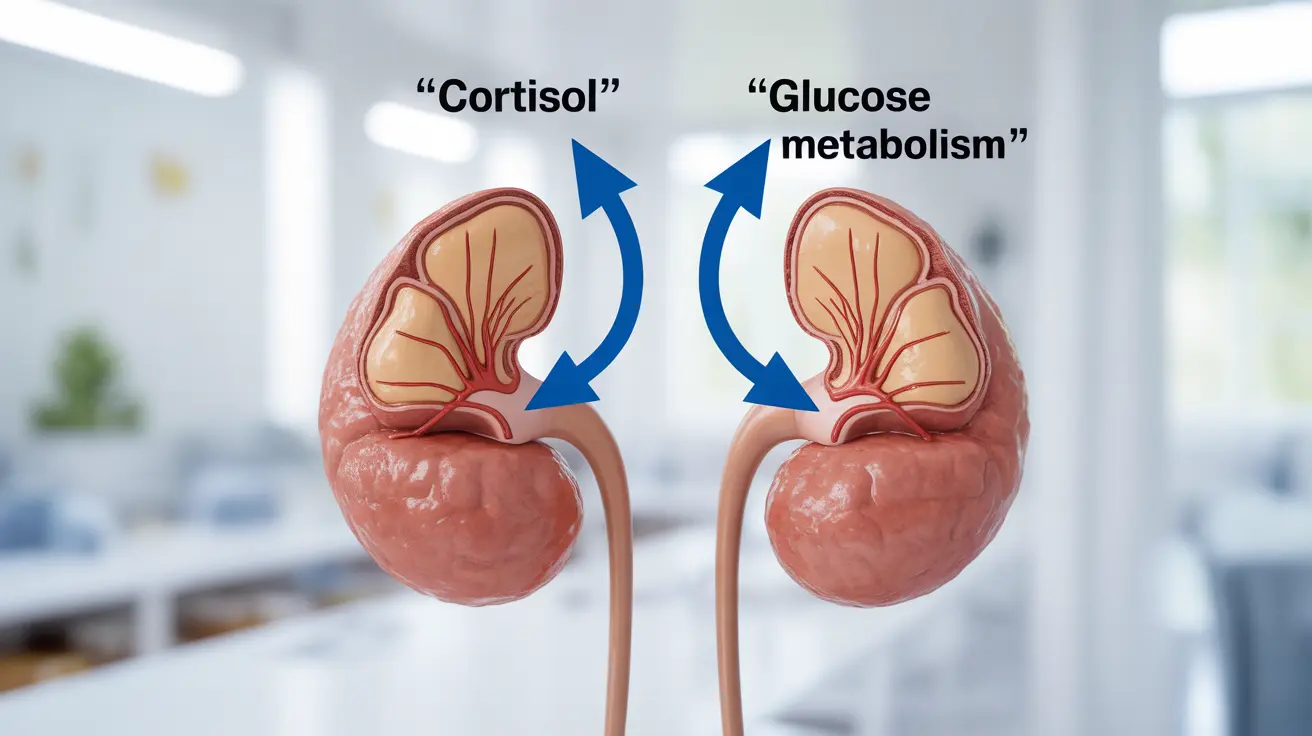Adrenal insufficiency and hypoglycemia are closely connected medical conditions that can significantly impact a person's health and quality of life. When the adrenal glands don't produce enough essential hormones, particularly cortisol, it can lead to dangerous drops in blood sugar levels, creating a potentially serious medical situation that requires proper understanding and management.
This comprehensive guide explores the relationship between adrenal insufficiency and hypoglycemia, helping you understand the symptoms, causes, and treatment options available. Whether you're newly diagnosed or seeking to better understand these conditions, this information will help you navigate your health journey more effectively.
The Connection Between Adrenal Insufficiency and Blood Sugar
Adrenal insufficiency affects the body's ability to maintain stable blood sugar levels through several important mechanisms. The adrenal glands produce cortisol, which plays a crucial role in regulating glucose metabolism. When cortisol production is inadequate, the body struggles to maintain proper blood sugar levels, especially during periods of stress or fasting.
This hormonal imbalance can lead to hypoglycemia, particularly in the early morning hours or when meals are delayed. Understanding this connection is essential for proper management of both conditions.
Recognizing the Warning Signs
People with adrenal insufficiency may experience various symptoms related to low blood sugar, including:
- Extreme fatigue and weakness
- Dizziness and confusion
- Shakiness and trembling
- Increased heart rate
- Anxiety and irritability
- Cold sweats
- Nausea and vomiting
These symptoms typically worsen when stressed or hungry, and may become particularly severe during an adrenal crisis.
Managing Adrenal Insufficiency and Preventing Hypoglycemia
Effective management of adrenal insufficiency and associated hypoglycemia requires a comprehensive approach:
Medication Management
Regular hormone replacement therapy, typically with hydrocortisone or other glucocorticoids, helps maintain proper cortisol levels throughout the day. Proper timing and dosing of these medications are crucial for preventing hypoglycemic episodes.
Dietary Considerations
A balanced diet with regular meal timing is essential. Key dietary strategies include:
- Eating regular, small meals throughout the day
- Including complex carbohydrates in each meal
- Avoiding long periods without food
- Keeping healthy snacks readily available
Emergency Preparedness
People with adrenal insufficiency should always be prepared for emergencies by:
- Carrying emergency injection kits
- Wearing medical alert jewelry
- Having quick-acting glucose sources available
- Knowing when to seek immediate medical attention
Monitoring and Long-term Care
Regular monitoring of both conditions is essential for optimal health outcomes. This includes regular check-ups with healthcare providers, blood sugar monitoring when necessary, and adjusting treatment plans as needed to prevent complications.
Frequently Asked Questions
- What are the common symptoms of adrenal insufficiency that can lead to hypoglycemia?
Common symptoms include extreme fatigue, weakness, dizziness, confusion, shakiness, rapid heartbeat, and cold sweats. These symptoms often worsen during periods of stress or when meals are delayed.
- How does adrenal insufficiency cause low blood sugar (hypoglycemia)?
Adrenal insufficiency reduces cortisol production, which is essential for maintaining blood sugar levels. Without adequate cortisol, the body cannot properly regulate glucose metabolism, leading to hypoglycemic episodes.
- What should I do if I experience hypoglycemia due to adrenal insufficiency or an adrenal crisis?
Take immediate action by consuming fast-acting glucose, using emergency medication if prescribed, and seeking immediate medical attention. If symptoms are severe, use your emergency injection kit and call emergency services.
- How is adrenal insufficiency diagnosed and tested in relation to hypoglycemia risk?
Diagnosis typically involves blood tests to measure cortisol levels, ACTH stimulation tests, and monitoring blood sugar patterns. Healthcare providers may also conduct insulin tolerance tests to assess the body's stress response.
- What treatments and lifestyle changes can help prevent hypoglycemia in people with adrenal insufficiency?
Treatment includes regular hormone replacement therapy, maintaining a consistent eating schedule, stress management, and having an emergency action plan. Lifestyle changes include regular meal timing, carrying emergency supplies, and working closely with healthcare providers to optimize medication dosing.




